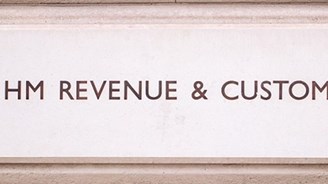Off payroll working in the private sector

From 6 April 2021, new tax rules are introduced for individuals who provide their personal services via an ‘intermediary’ to a medium or large business. An intermediary may be another individual, a partnership, an unincorporated association or a company. The most common structure is a worker providing their services via their own company (PSC), but the rules which will apply to all intermediaries.
Similar rules were introduced in 2017 for public sector organisations receiving services from PSCs.
The effect of the new rules, if they apply, will mean:
- the medium or large business (or an agency paying the PSC) will calculate a ‘deemed payment’ based on the fees the PSC has charged for the services of the individual
- generally, the entity that pays the PSC for the services must first deduct PAYE and employee National Insurance contributions (NICs) as if the deemed payment is a salary paid to an employee
- the paying entity will have to pay to HMRC not only the PAYE and NICs deducted from the deemed payment but also employer NICs on the deemed payment
- the net amount received by the PSC can be passed on to the individual without paying any further PAYE and NICs.
The practical effect of these rules is that the individual will no longer benefit from the potential tax advantages of receiving such income via their own company.
The new tax rules apply to amounts paid from 6 April 2021 and so may affect current contracts.
Medium or large business
The legislation uses an existing statutory definition within the Companies Act of a ‘small company’ to exempt small businesses from the new rules. Therefore the rules will exempt businesses meeting any two of these criteria: a turnover of £10.2 million or less; having £5.1 million on the balance sheet or less; having 50 or fewer employees. If the business receiving the work of the individual is not a company, it is only the turnover test that will apply.
The business must respond within 45 days if the individual asks for information on size.
There is no change where services are provided to a small business. Even after the changes are introduced from 6 April 2021, the individual will remain responsible for deciding if IR35 rules apply to contracts in such cases.
Deciding if the rules apply
The medium or large business will decide if the rules apply. The business needs to form an opinion as to whether, if the personal services of the individual were provided under a contract directly between the individual and themselves, the individual would be regarded as an employee of the business.
It is a matter of judgement whether the nature of and manner in which the services provided point to employment or self-employment. HMRC has a Check Employment Status Service tool (CEST) to help businesses decide the status of individuals providing personal services to them : www.gov.uk/guidance/check-employment-status-for-tax.
The Status Determination Statement (SDS)
The SDS is a new part of the status determination procedure. If the business decides that the engagement amounts to employment, it should provide the individual with an SDS, setting out its employment status decision, and giving the reasons underpinning it.
Disagreement with the SDS
The business must take ‘reasonable care’ in coming to its conclusion. If it doesn’t, the statement is not a valid SDS. HMRC guidance states: ‘What is necessary for each client to discharge that responsibility must be viewed in the light of their abilities, experience and circumstances.’ More will be expected of a large multi-national company than a smaller business.
If the individual disagrees with the decision, then the individual can use the tool to see if they obtain a different conclusion. Where the results confirm self-employment the individual can discuss the results with the business or may contact their adviser to discuss the matter. An employment result does not necessarily mean the result is correct. CEST has come in for criticism over the years, and has been refreshed to support the new regime.
SDS dispute process
The individual has a statutory right to make a representation to the medium or large business where they believe that the conclusion mentioned in the SDS is incorrect. The medium or large business has 45 days, from when the representation is received, to review the decision and either confirm that the decision and explain why they have done so or alternatively, withdraw it and provide a new one, with confirmation of the date it is valid from.
Keep your clients up-to-date with the key measures announced and what they could mean to them with an informative client letter. For more information, please click here.



